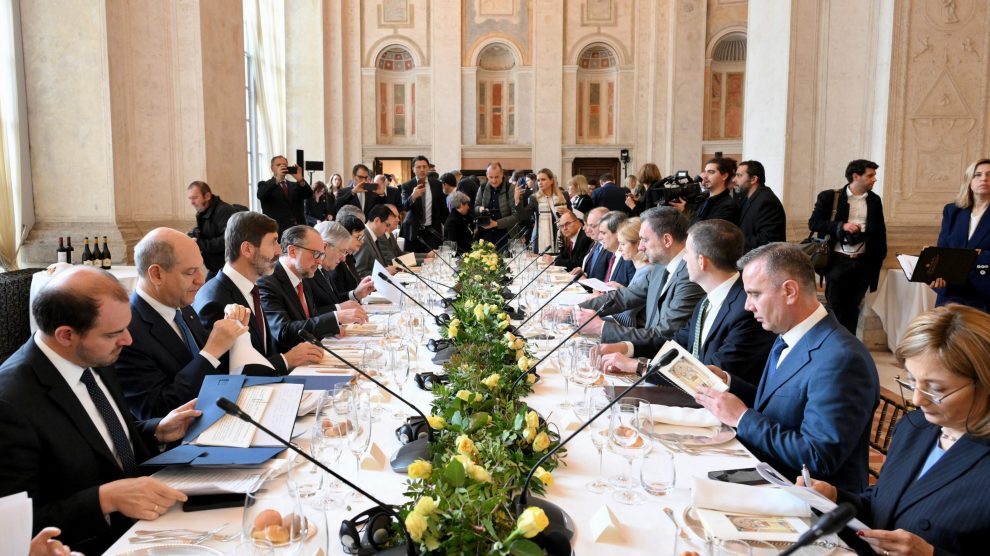Accelerating EU accession. At a ministerial meeting in Rome on Monday, Italian Foreign Minister Antonio Tajani presented a national position paper outlining concrete proposals to accelerate the EU accession process for candidate countries, including those from the Western Balkans.
- The Italian proposal focuses on three key areas: gradual integration in strategic sectors such as cybersecurity, public administration reform, migration management, and business cooperation; simplification of the accession process to avoid unnecessary delays and political deadlocks; and strategic communication to highlight the benefits of EU integration for local populations.
- Tajani presented Italy’s plan during bilateral meetings to Kaja Kallas, the EU High Representative for Foreign Affairs and Security Policy, and Marta Kos, the European Commissioner for Enlargement.
- The proposal was also shared with ministerial representatives from Albania, Bosnia and Herzegovina, Kosovo, North Macedonia, Montenegro, Serbia, Austria, Croatia, Greece, the Czech Republic, Slovakia, and Slovenia.
Tajani’s timeline for accession. The discussions emphasised Italy’s commitment to regional stability and the importance of expediting EU membership for these countries.
- “We are in favour of admitting all candidate countries before 2030. Serbia, Montenegro, Albania, and North Macedonia have made significant progress, and I believe 2029 is a realistic target,” Tajani stated. “We also support Bosnia’s accession, though it may require more time.”
- The conclusions of the ministerial meeting reiterated the priority given to the Balkans’ EU integration.
Trieste as a regional hub. During the meeting, Tajani highlighted Trieste’s strategic role as the primary port for the Western Balkans.
- “Trieste can serve as the main port of reference for all the Balkans,” he stated, underlining the need for infrastructure improvements to strengthen connections between Belgrade and Trieste.
- He also noted the recent business forum in Serbia and expressed hopes for increased Italian exports to the region.
- With its strategic position, Trieste could serve as a key gateway for the India-Middle East-Europe Economic Corridor, reinforcing Italy’s ambition to enhance trade links between Europe, the Middle East, and Asia while integrating the Western Balkans into this emerging infrastructure network.





